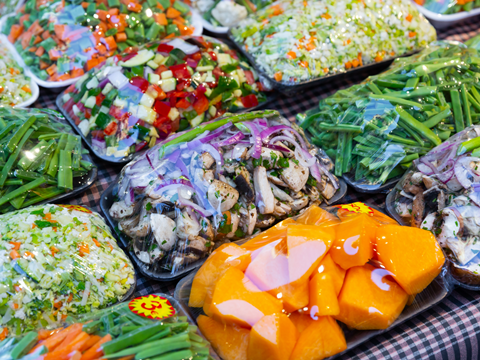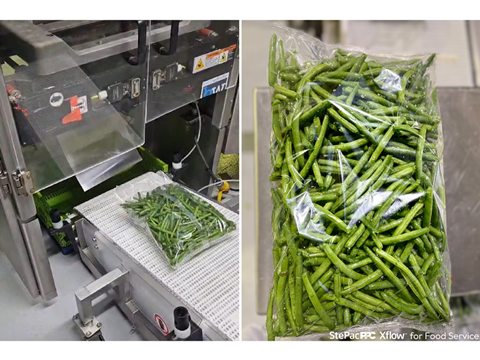
StePacPPC has partnered with Windham Packaging to develop a range of bulk modified-atmosphere packaging (MAP) aiming to improve shelf-life for fresh produce heading to foodservice outlets, reduce waste and improve operational efficiency.
StePacPPC developed the new range to extend the shelf life of fresh produce headed to foodservice outlets (predominantly restaurants, hotels, and canteens) and address food waste challenges within the foodservice industry. The company cites The European Food Information Council’s estimate that 1.05 billion tons of food waste is generated globally, with 60% coming from households and almost 30% emanating from the foodservice industry.
Apparently, the packaging is resealable and has inbuilt water vapor transmission rates (WVTR) to help eliminate excess moisture buildup and preserve the quality and appearance of the fresh produce. Suitable for horizontal and vertical form-fill and seal (HFFS and VFFS) operations, the films aim to minimize plastic consumption and are available with chemically recycled content with accreditation from RedCert2.
The design considers factors such as respiration rates, moisture sensitivity, dehydration risk and required atmospheric conditions, as well as post-harvest handling and supply chain requirements.

The new modified-atmosphere films are said to be gaining momentum among fresh produce packagers in the US, specifically for the delivery of ready-to-use sliced mushrooms, green beans, brussels sprouts and broccoli. StePacPPC adds that its formats have helped to eliminate the need for ice, giving the example of shipping broccoli from Salinas Valley to a major restaurant chain across the US. According to the company, the iceless packaging enabled the transport of 66% more broccoli per container, requiring fewer deliveries and reducing the carbon footprint.
The new packaging solutions are due to be showcased at Fruit Logistica held on 5-7 February in Berlin, at booth no. C-30 in Hall 5.2.
Last month the company revealed it had tailored its MAP films to suit a range of whole, sliced and fresh mushrooms, aiming to extend their shelf-life and lower food waste and cost. The solution is designed to slow decay and reduce weight loss in fresh whole and sliced white mushrooms, as well as whole exotic mushrooms like oyster, lion’s mane, shiitake, and portabella.
In March last year, Moy Park announced it had added Klöckner Pentaplast’s kp Elite – a MAP tray made entirely of rPET - to its packaging range, aiming to reduce its plastic consumption by 50 tonnes and transition completely into mono-material solutions. The tray is said to offer strength, maintain a product’s shelf life and cut down on food waste while also being kerbside recyclable.
If you liked this story, you might also enjoy:
The ultimate guide to the Packaging and Packaging Waste Regulation in 2024
How are the top brands progressing on packaging sustainability?
Sustainable Innovation Report 2024: Current trends and future priorities
Everything you need to know about global plastic sustainability regulation














No comments yet